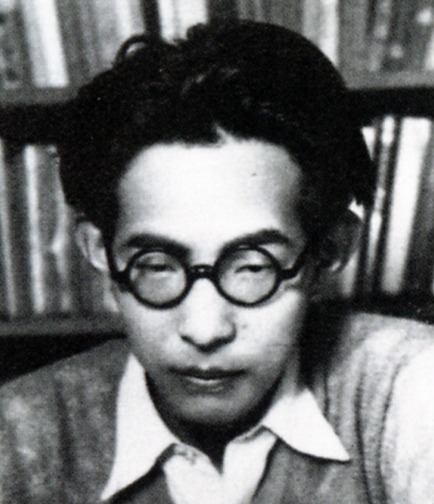- Hori Tatsuo
Infobox Writer
name = Tatsuo Hori

caption = Hori Tatsuo
birthdate = birth date|1904|12|28|df=y
birthplace =Tokyo ,Japan
deathdate = death date and age|1953|5|28|1904|12|28|df=y
deathplace =Tokyo ,Japan
occupation = Writer
genre = Poetry, translations of French poetry
movement =Proletarian Literature Movement ,modernism
notableworks =
influences =
influenced = nihongo|Hori Tatsuo|堀 辰雄|Hori Tatsuo|extra=28 December 1904 –28 May 1953 was awriter ,poet , and translator inShowa period Japan .Early life
Hori was born in
Tokyo , and was a graduate ofTokyo Imperial University . While still a student, he contributed translations of modern French poets to aliterary journal called "Roba", which was sponsored by poetMurō Saisei . He regarded himself as a disciple ofRyūnosuke Akutagawa , but his early works exhibit an attraction to theproletarian literarymovement as viewed by his friendsNagai Tatsuo andKobayashi Hideo . His later works reflect a movement towardsmodernism .Literary career
Hori wrote a number of
novelettes and poems, which are set in atmospheric locations, such as mountainsanatorium inNagano Prefecture , and are characterized by the melancholic theme of death, which reflect his own ongoing battle withtuberculosis . Often plotless and impressionistic, his style was praised byKawabata Yasunari .Hori wrote "Yamatoji, " a small sentimental collection of poetic essays about Nara and its historic sites. This was followed by "Adashino", a tragic romance set in the
Nara period . His beautiful descriptions of Nara and the world of the ancient capital have popularized by the tourist authorities in that city. Karuizawa,Nagano prefecture , where Hori stayed during his illness has erected a Hori Tatsuo Memorial Museum in his honor. His grave is at the Tama Reien, in the outskirts of Tokyo.Major works
* "Sei Kazoku" (nihongo|The Saintly Family|聖家族, 1932)
* "Utsukushii Mura" (nihongo|Beautiful Village|美しい村, 1933)
* "Kaze Tachinu" (nihongo|The Wind Has Risen |風立ちぬ, 1936-37)
* "Kagerofu no Nikki" (nihongo|Diary Of Mayfly|かげろふの日記, 1937)
* "Naoko" (nihongo|Naoko|菜穂子, 1941)
* "Arano" (nihongo|Arano|曠野, 1941)
* "Younen Jidai" (nihongo|Childhood|幼年時代, 1942)ee also
*
Japanese literature
*List of Japanese authors References
* Kojin, Karatani. "Origins of Modern Japanese Literature". Duke University Press (1993). ISBN 0822313235
External links
* [http://www.aozora.gr.jp/index_pages/person1030.html e-texts of works at]
Aozora Bunko
* [http://www.town.karuizawa.nagano.jp/html/syakai/031_hor.html Hori Tatuo Memorial Museum, Kazuizawa, (Japanese site)]
Wikimedia Foundation. 2010.
